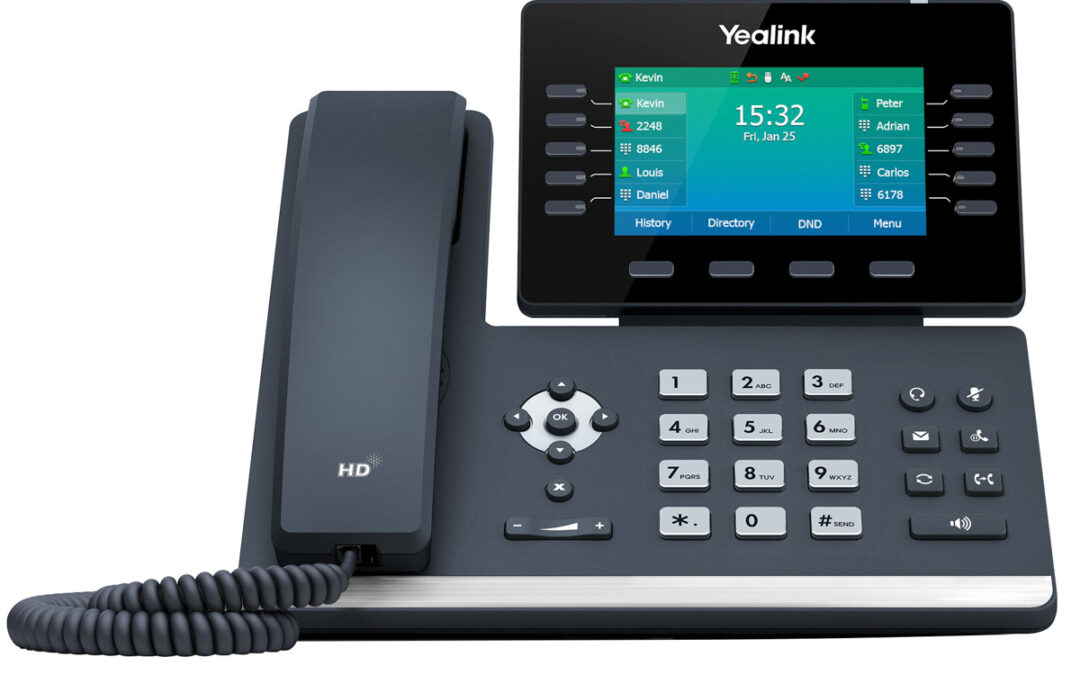IT’S CALLED WHAT AGAIN?
So, what is Voice over Internet Protocol (VoIP)? Let’s explain this further.
The future of business communications will be digital. However, many small and micro-sized businesses may currently still be using the same landline phone services they’ve had in place for many years. This is a situation that will need to change sooner rather than later, as these solutions won’t be around forever.
In fact, the UK’s legacy landline network is being switched off in 2025.
BETTER GET A MOVE ON THEN…
As a result, firms that are still reliant on this technology will need to find more modern alternatives in good time before this date in order to keep operating and avoid the panic of any last-minute decision-making. And for many, the best solution will be migrating to VoIP phone systems.
But a VoIP phone offers much more than just a futureproofed communications solution. It also provides businesses with a range of additional features and services to help streamline their systems, better keep in touch with customers, and boost productivity.
Small businesses, freelancers and startups in particular can benefit from these capabilities to help them level up their operations and compete on an equal footing with their larger and more established counterparts. This can be especially the case if VoIP phones are combined with other services such as fibre broadband to provide a complete, up-to-date communications platform.
But first, it’s important to understand what VoIP is and what it can offer your business.
WHAT IS A VoIP PHONE?
VoIP is short for Voice over Internet Protocol, and it’s a method of transmitting phone calls using the same digital data infrastructure used for internet connectivity. You may also hear it referred to as internet protocol, IP, telephony or cloud hosted telephony, but it all uses the same technology.
It’s been around for a while, but as internet technologies have advanced with high-speed fixed and mobile broadband, the solution has become much more practical and reliable for home and business users alike, enabling the use of high-definition (HD) services with no lag, stuttering or other loss of call quality.
SO HOW DOES A VoIP PHONE WORK?
When a phone call is made, a VoIP solution takes analogue audio signals and converts them into packets of digital data that are sent over data lines such as broadband connections.
Behind the scenes, these are routed to ensure they take the shortest path to their destination, allowing users to enjoy a seamless conversation.
As a result, users are no longer tied to a fixed landline at their desk. Instead, a VoIP call can be made from any device able to connect to the internet.
This means that as well as using traditional hard phones with VoIP capabilities, a VoIP call can be made from a desktop or laptop PC or a mobile device such as a smartphone, using either a Wi-Fi or mobile data connection.
CHOOSING THE BEST VoIP PROVIDER
Making the move should be fairly straightforward. But there are still a few steps you should go through first to determine what you’ll need and if there will be any other upgrades you’ll have to make in order to ensure the transition to internet phones is as easy as possible.
MAXIMUM NETWORKS
Get in touch with the Maximum Networks team team today on 0330 102 7444 or using our contact form

